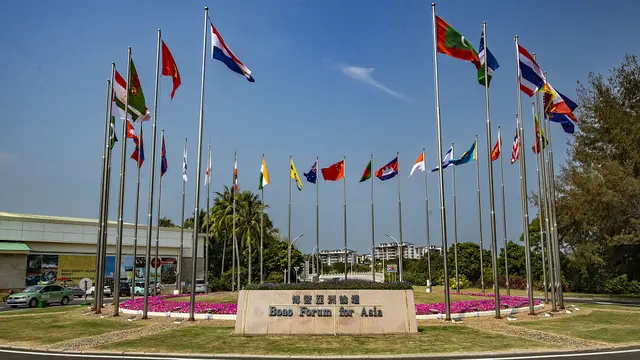Trade within Asia – where China is a crucial hub – now accounts for almost half of global trade, Kristalina Georgieva, managing director of the International Monetary Fund (IMF) said at the Boao Forum for Asia (BFA) on Thursday.
Georgieva said 2023 will be "another difficult year" for the global economy in the wake of the Russia-Ukraine conflict and monetary tightening.
IMF's latest forecast puts global growth at 2.9 percent in 2023, slowing from 2022's expected 3.4 percent.
She called for cooperation and solidarity among policymakers to navigate through uncertainty.
"So, how can policymakers navigate this time of uncertainty? This year's Boao Forum offers an answer: through cooperation and solidarity, the twin beacons of light we can rely on to guide us through the challenges that lay ahead," Georgieva said.
She warned that trade fragmentation risks could slash as much as 7 percent off long-term world GDP growth which is roughly equivalent to the combined annual output of Germany and Japan.
To illustrate the benefit brought by trade integration, Georgieva said that the world economy has tripled in size, with emerging and developing countries quadrupling in size, over the past 40 years.
"In China alone, 800 million people have been lifted out of poverty, as it has become ever more integrated into the world economy. A huge achievement by any standard!" Georgieva said.
The BFA's annual report, "Asian Economic Outlook and Integration Progress", called Asia a "bright spot" amid a bleak global economic landscape, estimating the weighted real GDP growth rate of Asia in 2023 to be 4.5 percent.
The report pointed out that against the backdrop of crises in the multilateral trading system, the Regional Comprehensive Economic Partnership Agreement (RCEP) is serving as a valuable source of dividends for intra-regional trade and investment.
The report added that the active involvement of Asian economies in the formulation of digital economy rules is conducive to promoting openness and development of the sector, which in turn provides a new growth pole for Asian economic development.
(CGTN)
 简体中文
简体中文

